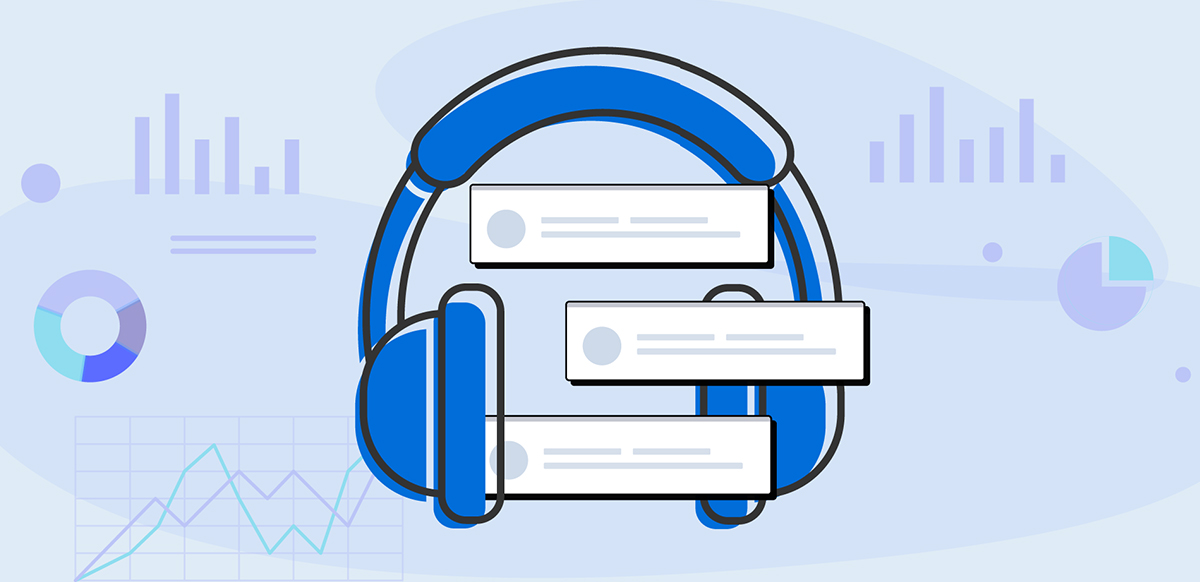It is always said that we should not listen to people who troll and say negative about us.
But it's not the same thing when it comes to brand.
Listening to people what they are talking about us or a competitor is really important. As it provides us with good insights into people's perspectives, admiration, aspirations, preferences and criticisms about our brand as well as of our competitors.
Based on recent research, the majority of customers anticipate brands to reply to their social media interactions within a day. This is why it is important to stay current with prevailing patterns and understand what your audience desires from your brand.
Why Social Listening?
People express what they feel on social media.
If they go to dine they click and put the snap on Instagram or SnapChat. If they like the food they might be also tagging the restaurant.
If your customer has some problem with your product they go on Twitter and complain about this.
If Cristiano Ronaldo has scored and made a moment in a match, people will talk about it all over the internet. That's where a brand can create creative content and integrate its brand.
These reasons make it necessary for a brand to be on social media and listen to the pulse.
What is social listening?
Social listening is the activity of monitoring social media channels for mentions of your company, competitor brands, and relevant keywords. By using
listening tools you can track various things like campaigns, mentions, hashtags, trending posts, competitors' postings and so on.
Social Listening vs Social Monitoring
Social Monitoring
Monitoring your brand's mentions, comments, and messages on various platforms is essential to promptly address customer inquiries and issues.
1. Real-Time Observation: Social media monitoring primarily involves real-time tracking of your brand's mentions, comments, and conversations. It's all about staying in the moment and being ready to respond swiftly to any developments.
2. Addressing Customer Concerns: One of the primary purposes of social monitoring is to keep a watchful eye on what customers are saying about your brand. This allows you to address issues, concerns, and questions promptly. It's a reactive approach focused on maintaining a positive brand image.
3. Crisis Management: Social monitoring is your first line of defence in crisis situations. When a negative incident or controversy arises, this approach enables you to take immediate action to control the narrative and protect your brand's reputation.
4. Brand Presence Verification: Monitoring ensures that your brand is visible on social media platforms, even if it's just to acknowledge mentions and maintain a consistent presence.
Social Listening
It's not only important to monitor references, but also to take notice of conversations that people have about your brand or industry in order to understand their opinions and emotions, even if they do not specifically mention your brand.
1. Proactive Insight Gathering: Social listening is a proactive approach that involves gathering insights and understanding the context of conversations. It's not just about reacting but about making informed decisions based on the gathered data.
2. Emotional Understanding: This approach delves into the emotional nuances of online conversations. It seeks to identify not only what is being said but also how people feel about your brand, products, and industry. This emotional understanding can be a game-changer for your brand's strategy.
3. Trend Identification: Social listening allows you to identify emerging trends and consumer sentiment. It's not limited to tracking your brand but extends to monitoring industry-specific keywords and broader conversations that may impact your business.
4. Strategic Decision-Making: The insights obtained through social listening inform strategic decisions. Whether it's crafting content, launching a new product, or fine-tuning your marketing strategy, social listening ensures that your decisions are data-driven and aligned with the needs and sentiments of your audience.
What are social media listening tools?
Digital marketers can use these tools for tracking social media campaigns, understanding how the competitors are running their business, identifying potential customers, and getting leads out of that.
This insightful information can be helpful in various ways like making a branding strategy, keyword research, knowing what people are discussing about your brands, market analysis and so on. Social media listening tools come with a lot of benefits. Let's discuss the benefits of using social media listening tools.
Benefits of using Social Listening Tools
Audience Insights
Social media has evolved as a platform for people to freely express themselves and share their thoughts on a variety of topics. Some people write positive reviews, while others go rogue and write negative ones as well.
Finally, the end outcome is always learning.
You can utilise these tools to learn what people think about your brand and how you can make enhancements to your services or products based on what people think.
Based on these data you can understand the bigger picture and navigate your brand's ship accordingly.
https://twitter.com/Dmurr68/status/1627836627924967425
Brand awareness
Social listening tools can track your business's social media mentions, interactions and engagements based on this you can track how
People are less inclined to use your product or service if their engagement level is low.
Many businesses are concerned because if no one knows about them, it might lead to disaster. In short, social media listening tools serve as a barometer for measuring social media performance.
Market Research
According to studies, about 80% of social media users utilise social listening tools to learn about products and services. While brands can usually find out what's going on on social media, it can be difficult to figure out what people want and how they feel about specific topics. Brands may use the correct tools to monitor whether customers are interested in a specific product or service, which allows them to determine their next move and change accordingly.
Generating Leads
Nowadays, social media is not just limited to a social platform for sharing and giving opinions. Many effective marketing campaigns are formed by keeping social media trends in the centre. Social platforms are offering tools for businesses like WhatsApp business and Instagram for Business where you can set up your own stores and sell products online. This ultimately conveys that a lot of information can be accessed by using social media listening tools. You can generate leads by listening to what people are looking for. In some cases, social media listening tools act as social media management tools for managing your brand's presence.
Brand Promotion
A specific use of social listening tactics is brand promotion via content marketing campaigns. While it is possible to create content that promotes your brand and generates interest in your products, it is a time-consuming process. However, by using social listening tools and monitoring what people are expressing about you on social media platforms, you can instantly create and spread valuable content, resulting in increased traffic, exposure, and sales.
How Do Social Listening Tools Work?
Social media listening tools employ a combination of sophisticated algorithms, data mining, and machine learning to sift through the vast sea of social media content. Here's a glimpse into their inner workings:
1. Data Collection
The first step is data collection. These tools continuously scan various social channels, including Facebook, Twitter, Instagram, LinkedIn, and more. They collect data in real time, ensuring that no relevant conversation or mention goes unnoticed.
2. Keyword and Hashtag Tracking
Once the data is collected, the tools employ keyword and hashtag tracking to pinpoint content related to specific topics, brands, or products. This is where the magic begins. By analysing the use of keywords and hashtags, these tools can identify trends and sentiments associated with your brand or industry.
3. Sentiment Analysis
Sentiment analysis is a crucial feature of social media listening tools. It categorises mentions and comments as positive, negative, or neutral. This analysis provides insight into the overall perception of your brand and the emotional context of conversations.
4. Competitor Analysis
Besides tracking your brand, these tools also monitor your competitors. They keep an eye on competitor mentions, engagement, and audience sentiment. This information helps you adapt your strategies to stay competitive.
5. Reporting and Insights
The insights derived from social listening are presented in user-friendly dashboards and reports. These reports offer a holistic view of your brand's performance, including mentions, trends, sentiment, and engagement levels. They provide actionable data to refine your marketing strategy.
Top 5 Social Media Listening Tools: How They Work and Their Special Features
In the ever-evolving landscape of digital marketing, social media listening tools play a pivotal role in helping businesses understand their audiences, track trends, and manage their online presence. Here, we present the best social media listening tools, along with a glimpse of how they work and their special features:
1. Hootsuite
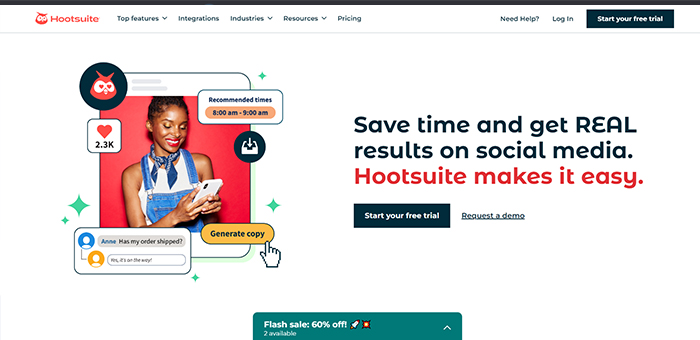
How It Works: Hootsuite is a versatile social media management tool that includes listening capabilities. It allows you to monitor brand mentions, keywords, and hashtags across various social platforms. Hootsuite's dashboard offers real-time feeds and custom streams, making it easy to keep tabs on relevant conversations.
Special Features:
-
Collaboration: Hootsuite facilitates team collaboration, making it a breeze to manage social media efforts collectively.
-
Analytics: The tool provides in-depth analytics, helping you measure campaign performance and audience engagement.
-
Scheduled Posts: You can schedule and automate posts, saving time and ensuring consistent content distribution.
2. Brandwatch
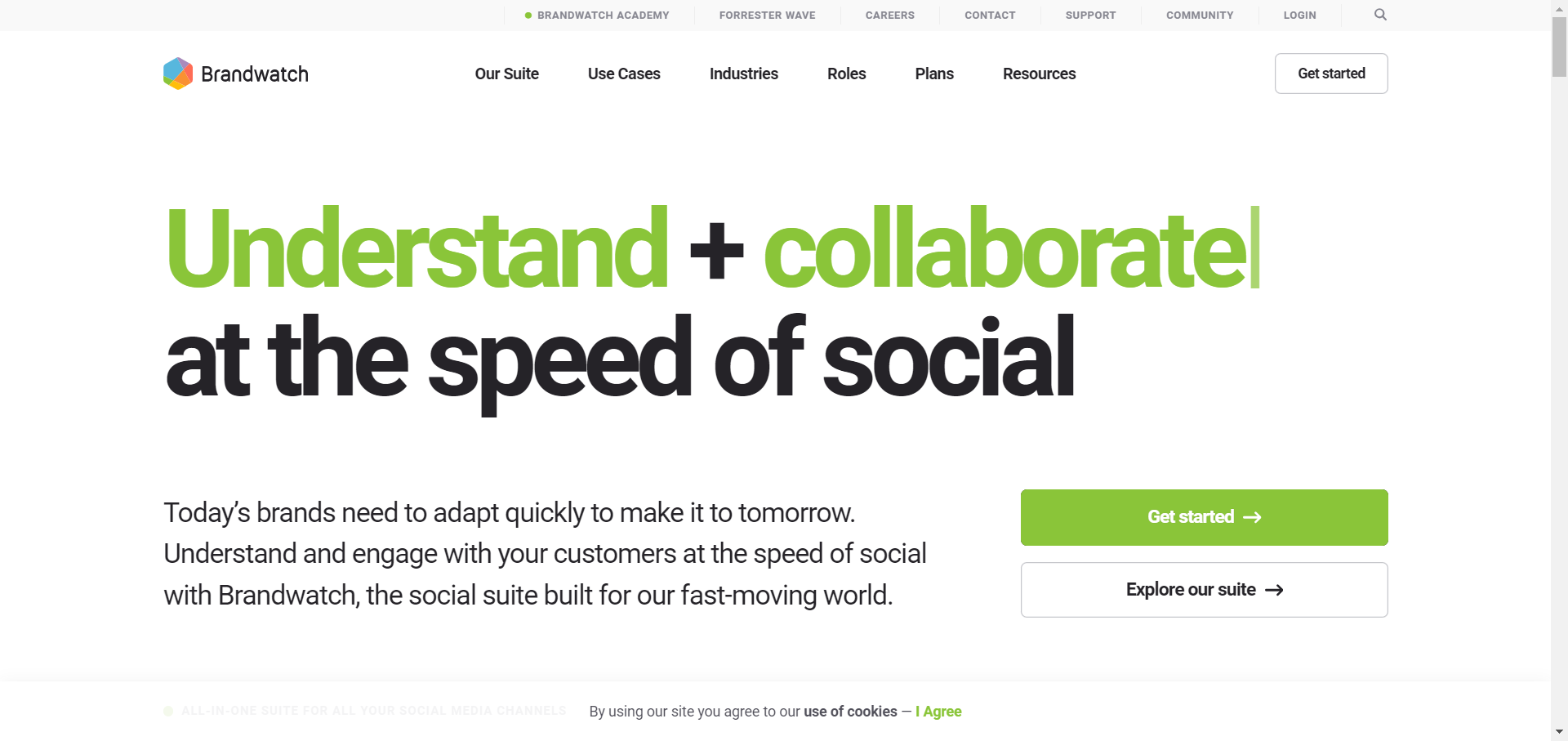
How It Works: Brandwatch is a comprehensive social listening tool that tracks brand mentions and analyses conversations on social media platforms. It uses machine learning and AI to uncover insights into customer sentiment and emerging trends.
Special Features:
-
Image Analysis: Brandwatch can analyze images shared on social media, providing insights beyond text-based content.
-
Geolocation Tracking: The tool offers geolocation data to help businesses understand where conversations about their brand are happening.
-
Data Integration: Brandwatch can integrate data from a wide range of sources, providing a holistic view of your brand's online presence.
3. Talkwalker
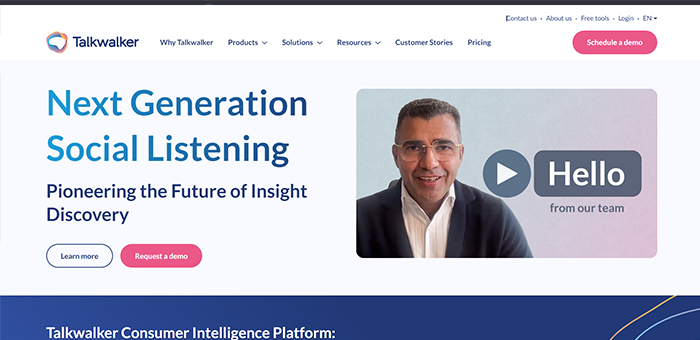
How It Works: Talkwalker is a social listening and analytics platform that tracks brand mentions, keywords, and hashtags across social media networks, news sites, forums, and blogs. It provides real-time monitoring and alerts.
Special Features:
-
Sentiment Analysis: Talkwalker offers sentiment analysis, allowing you to gauge the mood and emotions of online conversations.
-
Image Recognition: The tool can identify logos and images associated with your brand, even in user-generated content.
-
Competitor Benchmarking: Talkwalker enables you to compare your brand's performance with that of competitors, identifying areas for improvement.
4. Sprout Social
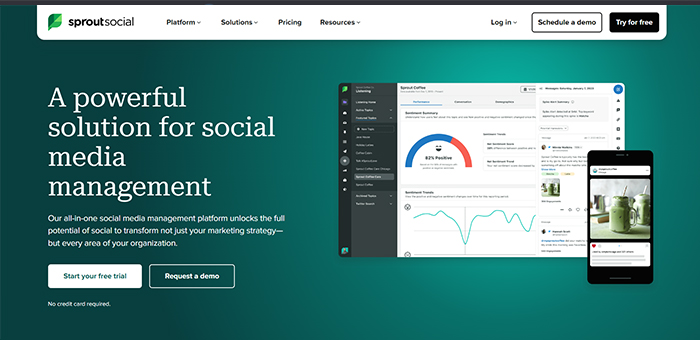
How It Works: Sprout Social is a social media management and listening tool that allows you to track brand mentions, keywords, and hashtags. It offers real-time monitoring and reporting features.
Special Features:
-
Engagement Tools: Sprout Social helps you engage with your audience directly by managing messages, comments, and interactions.
-
Keyword and Hashtag Tracking: You can track specific keywords and hashtags to stay on top of trends and relevant conversations.
-
Customizable Reports: Sprout Social provides detailed reports that can be customized to showcase the data most important to your business.
5. BuzzSumo
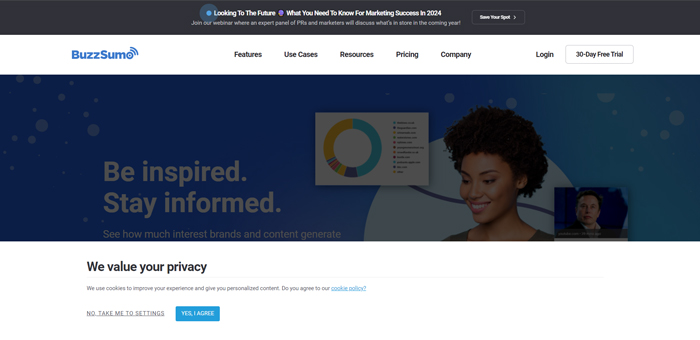
How It Works: BuzzSumo specializes in content and influencer discovery but also offers social listening features. It allows you to track brand mentions and keywords across various social platforms.
Special Features:
-
Content Discovery: BuzzSumo helps you find the most popular and engaging content in your niche.
-
Influencer Identification: It assists in identifying key influencers who can amplify your brand's reach.
-
Backlink Analysis: BuzzSumo provides insights into the backlinks your content receives, aiding in SEO efforts.
Each of these top social media listening tools has its own strengths and unique features, but they all contribute to the essential task of helping businesses understand their online presence and engage effectively with their audience. When selecting a tool, consider your specific goals and requirements to make the best choice for your business.
Conclusion
Social listening is an invaluable practice for brands. It provides insights into customer sentiments, trends, and emotions, enabling data-driven decision-making. Social media listening tools like Hootsuite, Brandwatch, Talkwalker, Sprout Social, and BuzzSumo play a vital role in collecting and analyzing data. They empower brands to stay responsive and proactive in the dynamic digital landscape. In today's world, where social media serves as a platform for public expression, staying attuned to customer needs and industry trends is essential for the success and longevity of any brand. Social listening goes beyond monitoring; it's the compass guiding businesses towards a brighter future.
